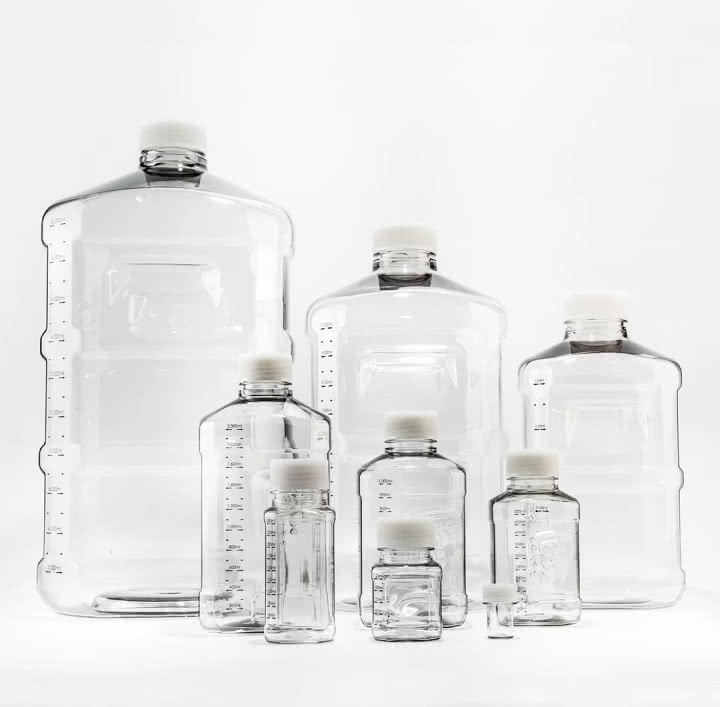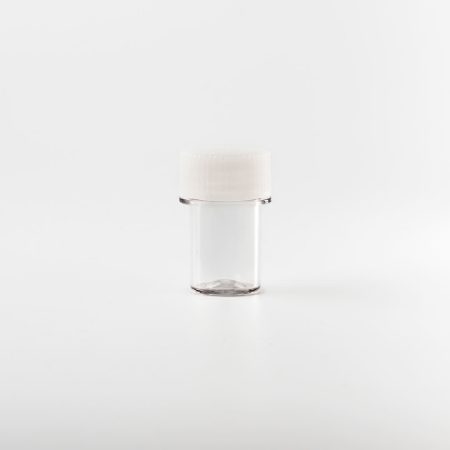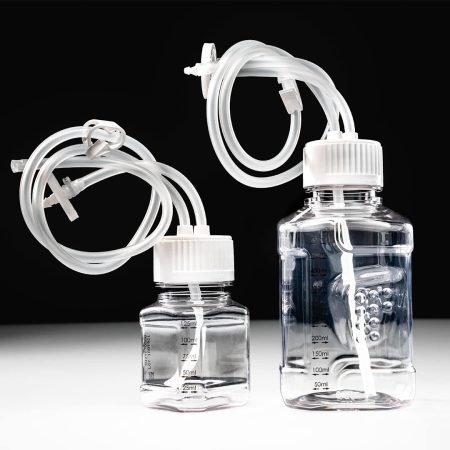Challenges of the freezing process
In biopharmaceutical manufacturing, it is common to bulk-freeze biological drug substance (DS), with target storage temperatures ranging from -20℃ to below -65℃. These temperatures offer a number of benefits – they can stabilize the DS long-term, helping to maximize its shelf life, allowing for bulk storage until needed. Freezing can also help minimize the risk of potential microbial growth in bioburden-controlled DS, as well as circumvent cumulative stability of DS and drug product (DP).
However, the freezing process for biological DS poses challenges for manufacturers and failure to address this can significantly impact product quality. Common issues include not maintaining careful control of the freezing rate by using the right container size or not setting an appropriate fill level or harnessing the right freezing equipment. The result of this could be protein aggregation and sub-visible particle formation, as well as “cryo-concentration” of molecules, further undermining protein stability.
All these issues ultimately result in a DS that may have inconsistent quality and potency across the batch, with ramifications for the efficacy and safety of the final drug formulation. It may even result in some units of DS becoming unusable well before the end of their projected shelf lives – resulting in costly waste.
The search for a solution
A new study conducted by SaniSure’s solution partner, CDMO Ten23 Health AG, explores this dilemma. It presents a compelling new, effective and scalable methodology for sampling biological DS that has been bulk-frozen to identify and address potential protein aggregation or cryo-concentration before it affects quality.
In the study, polycarbonate PharmaTainer™ bottles provided by SaniSure were harnessed to store a surrogate solution – used in place of genuine DS – during and after the freezing process. The bottles and surrogate solution were subjected to temperatures as low as -80℃ under two freezing protocols to test a new technique to sample the frozen surrogate at different depths to gauge the effect of each protocol on solution homogeneity. This study demonstrates an efficient core sampling method to understand the rate of cryo-concentration within a bottle containing DS.
PharmaTainers™ are extremely clean and strong rigid containers for single-use applications, produced with DCF virgin medical-grade resins in an ISO 5-classified environment and certified sterile SAL 10-6, conforming to USP788 and USP85. PharmaTainers™come in a range of sizes from 10ml to 20l, and have been shown in testing to maintain their structural integrity when kept long-term in temperatures as low as -80℃, making them ideal for use in bulk-freezing DS.
New testing methodologies can tackle the risk
Bulk-freezing of DS can play a vital role in biological manufacturing, provided the freezing process itself is designed with the unique needs of the DS in mind to uphold optimum product quality
This new sampling process by Ten23 Health AG – harnessing SaniSure’s PharmaTainers™- offers a compelling approach to help companies develop the most appropriate freezing protocol for their particular DS.
Read the complete study published in AAPS PharmSciTech to find out more.


